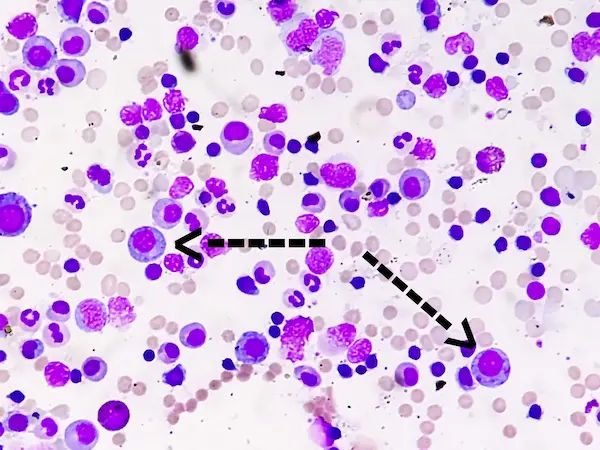Why Are My Hands and Feet Always Cold? A Comprehensive Guide
Wondering why your hands and feet are always cold? This guide explains common causes like stress, anemia, thyroid issues, Raynaud’s, and circulation problems—plus practical remedies, warning signs, and when to see a doctor.

Written by Dr. Shaik Abdul Kalam
Reviewed by Dr. Rohinipriyanka Pondugula MBBS
Last updated on 13th Jan, 2026

Introduction
Do you constantly find yourself rubbing your hands together or searching for a pair of warm socks, even on a mildly cool day? You're not alone. While often a harmless response to a cold environment, persistently cold hands and feet can sometimes be your body's way of signaling an underlying issue. This sensation goes beyond simply feeling chilly; it's a deep-seated coldness that seems resistant to warming up. Understanding the reasons behind this common complaint is the first step toward finding relief. This guide will walk you through the everyday causes, potential medical conditions, and practical solutions to help you manage and understand why your extremities feel like blocks of ice.
Common, Everyday Causes of Cold Extremities
Before jumping to medical conclusions, it's important to recognize the benign and frequent reasons for cold limbs. Often, the cause is simply how your body is designed to work.
Your Body's Natural Thermoregulation
When exposed to cold temperatures, your body's primary goal is to protect your vital organs—your heart, brain, and lungs. To do this, it performs a process called vasoconstriction, where blood vessels in your extremities (like your hands and feet) narrow. This reduces blood flow to the skin's surface, conserving heat for your core. This is a perfectly normal physiological response, but some people's bodies are simply more sensitive and reactive to cold, leading to more pronounced cold hands and feet than others.
The Impact of Stress and Anxiety
Your body's "fight or flight" response isn't just triggered by predators; modern-day stressors can activate it too. When you're anxious or stressed, your body releases adrenaline. This hormone causes, among other things, vasoconstriction, again shunting blood away from the skin and toward your muscles in preparation for action. This is why you might feel cold, clammy hands during a stressful presentation or a difficult conversation.
Underlying Medical Conditions Linked to Cold Hands and Feet
When cold extremities are severe, frequent, or accompanied by other symptoms like color changes or pain, it may point to a medical condition.
Raynaud's Phenomenon: The Classic Culprit
Raynaud's is a condition where the small blood vessels in your fingers and toes overreact to cold or stress. During an attack, these vessels narrow dramatically, causing the affected areas to turn white, then blue, and feel numb and cold. As blood flow returns, they may turn red and throb or tingle. Primary Raynaud's (the most common form) is usually manageable, while Secondary Raynaud's is linked to other diseases.
Anemia and Iron Deficiency
Anemia occurs when you don't have enough healthy red blood cells to carry adequate oxygen throughout your body. Iron is a key component of these cells. Without enough oxygenated blood, your body struggles to generate heat, leading to constant feelings of cold, especially in the hands and feet. Other symptoms often include fatigue, weakness, and pale skin. A simple blood test can diagnose anemia. If you suspect a deficiency, Apollo24|7 offers convenient home collection for tests like a Complete Blood Count (CBC) or ferritin (iron stores) test.
Thyroid Troubles: The Link to Hypothyroidism
Your thyroid gland acts as your body's thermostat. An underactive thyroid (hypothyroidism) slows down your metabolism, reducing your body's heat production. This can make you unusually sensitive to cold temperatures overall, with extremities being the first to feel the effect. Fatigue, weight gain, and dry skin are other common signs.
Circulatory Issues: Peripheral Artery Disease (PAD)
PAD is a condition where narrowed arteries reduce blood flow to your limbs, most commonly the legs and feet. This is often due to a buildup of fatty deposits (atherosclerosis). When your limbs don't receive enough blood flow, they can feel cold, numb, or painful, especially during walking (claudication). This is a more serious circulatory issue that requires medical attention.
Autoimmune Disorders and Nerve Damage
#Lupus and Scleroderma
Autoimmune diseases like lupus and scleroderma can cause inflammation that damages blood vessels and tissues, leading to Raynaud's-like symptoms and poor circulation. These conditions often present with a wide range of other symptoms, such as joint pain, skin rashes, and fatigue.
#Diabetes and Peripheral Neuropathy
Over time, high blood sugar levels from diabetes can damage the nerves, a condition known as peripheral neuropathy. While this often causes burning or tingling sensations, it can also lead to a feeling of coldness in the feet, even if they are actually warm to the touch. This nerve damage disrupts the normal messaging between the brain and the extremities.
Lifestyle and Environmental Factors
Your daily habits play a significant role. A diet lacking in essential nutrients like iron and vitamin B12 can contribute to anemia. Smoking is a major factor, as nicotine causes blood vessels to constrict, severely impairing circulation to the hands and feet.
Effective Home Remedies and Management Tips
For most common causes, simple lifestyle changes can make a world of difference.
Dress for Success: Wear warm, layered clothing. Don't forget insulated gloves, thick socks, and warm footwear. Hand and foot warmers can be a quick fix.
Diet and Hydration: Eat iron-rich foods (lean meats, beans, leafy greens) and stay well-hydrated. Warm fluids like herbal tea can help raise your core temperature.
Move Your Body: Regular exercise is one of the best ways to boost your overall circulation. Even wiggling your toes and making circles with your ankles while seated can help.
When to See a Doctor: Warning Signs Not to Ignore
While often harmless, you should consult a doctor if your cold hands and feet are accompanied by:
Thickening or tightening of the skin.
Sores or ulcers on your fingers or toes that won't heal.
Fatigue, weight changes, or fever.
Pain in your joints or fingers.
Color changes in your skin (white, blue, red patches).
If symptoms persist beyond two weeks or you experience any of these warning signs, consult a doctor online with Apollo24|7 for further evaluation. They can help determine if an underlying condition like anemia, thyroid issues, or Raynaud's is the cause.
Conclusion: Taking Control of Your Comfort
Living with persistently cold hands and feet can be more than just an annoyance; it can impact your daily comfort and quality of life. By understanding the spectrum of causes—from the benign to the more serious—you are empowered to take action. Start with the simple lifestyle adjustments: dress warmly, manage stress, and maintain a balanced diet. Pay close attention to your body's other signals. If your condition does not improve after trying these methods, or if you have any red flags, seeking professional medical advice is a crucial next step. A healthcare provider can offer a proper diagnosis and a tailored treatment plan, helping you move from chilly discomfort to lasting warmth.
Frequently Asked Questions (FAQs)
Q1. Is it normal to always have cold hands and feet?
A.For many people, yes. Some individuals naturally have more sensitive circulatory systems that constrict blood vessels more readily in response to cold or stress. However, if it's a new, persistent, or worsening issue, it's worth discussing with a doctor.
Q2. Can low blood pressure cause cold feet?
A.Yes, low blood pressure (hypotension) can contribute to cold extremities. With lower pressure, it can be more challenging for blood to reach the farthest points from the heart, like the feet and hands, potentially making them feel colder.
Q3. What vitamin deficiency causes cold hands and feet?
A.Deficiencies in iron (leading to anemia) and Vitamin B12 are most commonly linked to feelings of coldness. B12 is essential for healthy red blood cell formation and nerve function.
Q4. Why are my feet cold even with socks on?
A.If your feet are still cold despite wearing socks, it could be due to poor circulation preventing warm blood from reaching them, a nerve issue (like neuropathy) causing a false sensation of cold, or that your core body temperature is simply too low and your body is prioritizing heat for your organs.
Q5. Can anxiety cause cold hands and feet?
A.Absolutely. Anxiety triggers the release of adrenaline, which causes blood vessels to constrict (vasoconstriction) as part of the "fight or flight" response. This redirects blood flow away from the skin and extremities, leading to cold, clammy hands and feet.
Health topic carousel:
Doctor's speciality: General Practitioner
Text: Consult a Specialist for the best advice




